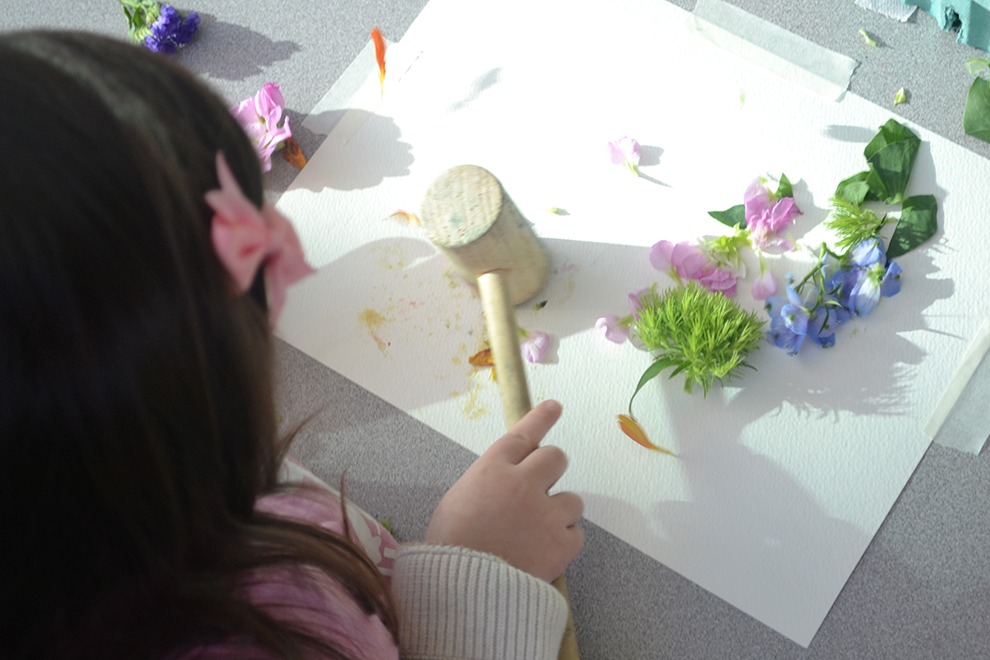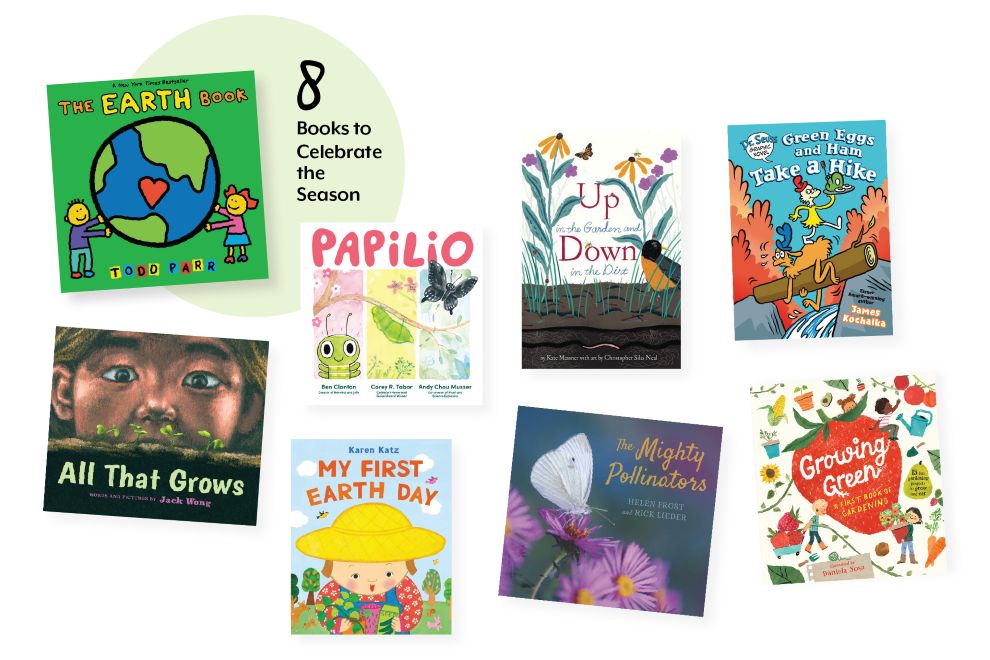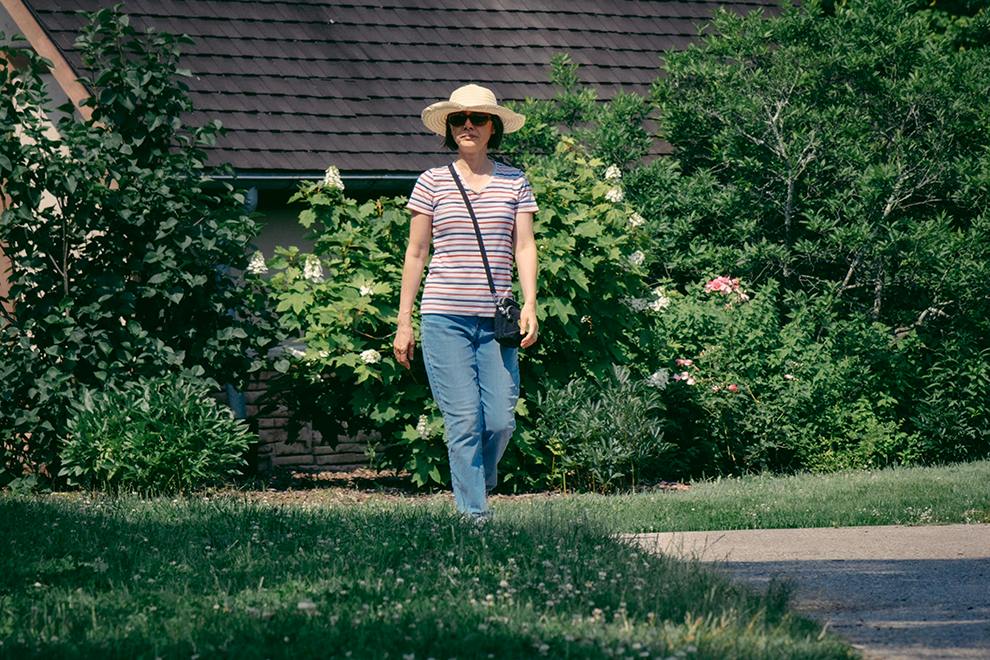Working hard as a nurse, I understand the call of a holiday. Last year my family and I skimmed steep water slides, walked white sand beaches, and sipped piña coladas by the pool at the Atlantis Resort in the Bahamas. It was extraordinary, but it bothered me that we were in a foreign country and our only cultural experience was being served conch fritters by a Bahamian waiter. I left Atlantis refreshed, but with nothing more to show than the fact that I could no longer button my pants. I wanted something more for myself and my family.
So when I received an alumni email about a service tour to Mexico, I signed up my 14-year-old daughter, Alex, and Myself. We were bound for Alianza Reál, a community of 40,000 people relocated from a flood zone in Monterrey to a barren region of land, an hour’s bus ride from the central city. Healthcare, construction, business guidance and exposure to the arts were sorely needed. In response, a group of sixty arrived in early spring, ready for five focused days of service and action, sandwiched between a couple days of sightseeing.
A registered nurse, I looked forward to providing healthcare, while Alex wanted to share her love of performing arts. While I expected poor conditions, upon arrival I was appalled at what passed for livable. I’d seen slums in America, but this community surpassed any definition of poverty I knew.
The town sweltered at the edge of dusty Mexican desert. We saw no paved roads, industry for jobs, or ways for residents to improve their lives without herculean effort. Houses no bigger than the average American bedroom were made of plywood or corrugated metal with shower curtains for doors. A few had walls of concrete block.
A typical interior contained a cooking area and one large mattress for the entire family, usually four or more people, to sleep on. Over half the community lacked plumbing, their only water source a barrel filled weekly by the government; the Supply often ran out. At the end of the first day I blew dirt from my nose, filtered from the same air breathed by the newborn I held in the medical clinic.
Despite the dearth of resources, we were greeted with smiles and warm welcomes. Mothers proudly showed off beautiful children who ran laughing, ready to play with the troupe of visitors. A local social services group had prepared our way. Tents abounded for medical clinics, healthcare education, tutoring, yoga, performing arts and craft projects. A soccer field had been cleared, and a small patch of land awaited a playground. Care is contagious; our volunteers jumped right in.
The nearest health center was fifteen kilometers away and most residents lacked the resources to get there, making nurses and doctors in high demand. I assisted with labs revealing numerous cases of diabetes, urinary tract infections and positive pregnancy tests. Other practitioners performed multiple physical assessments, treated acute conditions and served as educators. Our team treated 740 patients, 279 of whom were children. What would these people have done had we not been there? Good fortune certainly helped the fresh scorpion bite and emergency stroke patient we triaged, as no ambulance service for Alianza Reál exists.
While I worked in healthcare, Alex found her niche in a nearby tent teaching performing arts. Initially, I worried about letting her do her own thing; she didn’t know anyone and spoke no Spanish. But the first time I checked on her, she was happily teaching American hip-hop to Mexican children, alongside a college student from Kenya and an alum from Singapore. The local kids exploded with ecstatic energy as they listened to new beats and learned fresh moves. Alex discovered that music and dance erase language barriers.
In just five days, side by side with other volunteers, we treated disease, promoted health, built two playgrounds, helped entrepreneurs form business plans, and taught a range of educational sessions.
The joy and hope resulting from this large group effort felt magical, a thrill no tropical vacation could match. Instead of Splashing away time in the Caribbean, I received the priceless gift of seeing my daughter grasp that children around the world are dealing with issues far more challenging than being the only eighthgrader without a cell phone. I don’t know the depths of her pre-conceived notions about people who grow up in poverty. However, it took little time for her to realize she is no better, smarter or more talented than people without her material advantages. The kids she worked with caught on quickly, absorbed everything they could and thirsted for more. Sadly, their access to education was limited. Allowed only three, three-hour school days a week, even the most driven students can’t reach their potential. Watching my child understand that her good grades and talents might not exist if she hadn’t been on the lucky end of life’s resources was beyond meaningful. How can a typical American child from the suburbs truly understand this concept unless she experiences it firsthand?
I predicted that helping the people of Alianza Reál would be the most significant part of the trip. I did not foresee that we would take away so much more. I left Mexico with a renewed appreciation for my blessings, incredible new friends, amazing memories with Alex, and a strengthened connection to my alma mater. Alex has kept in touch with the high school students she met as interpreters (Facebook makes it easy), and is now taking Spanish. The meaning and memory of service will outlast any time spent being served, no matter how good the piña coladas. We continue to receive from the infinite ripple of giving created by service. We were naïve going in to it, thinking we were the givers.




